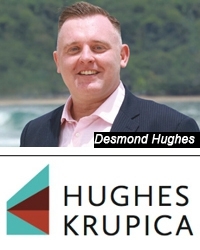

Hurry to say the least
In a world where sound bites, short tweets, Facebook comments, We-Chat recorded voice instructions and emoticons are gradually permeating our lives both personal and professional at all levels, the basics of doing business can be forgotten. Using short form messages for all communications and business activities is also not advisable because – contrary to the principles of WhatsApp, Line, WeChat and Facebook Messenger – short and sweet is not always good.
The long con
Recently in the news there has been a spate of ‘scam’ or, to use the legal term, ‘fraud’-based activities relating to business dealings. One such scam comprised a business person who used a Facebook page to sell fairly inexpensive products to a group of people.
These products were reportedly marketed solely from the Facebook page and using Messenger. Following the build up of ‘trust’ by the purchasers of the products, the same business person then approached the group to ascertain if they would participate in a money lending scheme with attractive too-good-to-be-true terms. Having acquired their trust, the business person collected the monies, didn’t provide the returns, and simply disappeared.
The victims were unable to identify the con artist, as they had all been communicating via Facebook and message systems only. They had not collected specific identification documents or address information on the person, yet they had sent monies – in aggregate a significant amount – to that person.
Many con artists believe that what they do is not morally wrong, if people are greedy enough to make bad decisions...
The first successful project con
Many developers who build a successful real estate project should be respected and rewarded for having gone through a difficult set of challenges. Unfortunately, in many packs of apples, there may be a bad apple or two.
Some developers do not set out to scam their owners, but they become over-confident and over-extend themselves; then they may pass on their bad risk management decisions to buyers.
Many developers will set up their marketing on the basis of one completed project, which they will represent as ‘successful’. They may set up multiple similarly branded projects and then persuade buyers that they are ‘on a roll’.
They may even pay a contractor to start some foundation works, or for land clearance and superficial preparations to be made to their land to demonstrate that ‘works are underway’. Many times we have seen this model collapse, and expensive luxury-car-driving developers are suddenly humbled and must give up all control and assets to the bank that amazingly decided to lend them money for speculative sale projects.
This is of course at the worst end of a spectrum in which there are many successes but, nevertheless, this is a reality of the business environment and, wherever possible, must be avoided at all costs.

What does ‘due diligence’ really mean?
If you ask different lawyers from different law firms, you may receive similar lists, some longer than others. However, it is worth conducting an inexpensive ‘preliminary’ due diligence on who you are doing business with, before you even spend time, resources and monies on exploring a business investment opportunity, of any nature whatsoever – be it real estate, a joint venture into a potentially profitable food and beverage outlet, a hotel or a travel business.
Here are some very basic checks:
Summary
Some people will conduct a quick Google search of someone, and forget that they might see what the other person wants them to see. Con artistry is as sophisticated as the technology we all use. Therefore, basic checks of information, comparing results and conducting diligent enquiry is an irreplaceable measure of caution that is unlikely to be replaced by any automated process anytime soon.
By Desmond Hughes, Senior Partner of Hughes Krupica.
Hughes Krupica is a law firm which specialises in Real Estate; Construction; Hospitality; Corporate; Commercial; Personal Injury; Dispute Resolution; and Litigation, operating in Bangkok and Phuket, servicing clients in relation to their business activities in Thailand and in other regions of Asia.
www.hugheskrupica.com

Contact info:
Hughes Krupica Consulting
PHUKET (HEAD OFFICE)
Hughes Krupica Consulting Co. Ltd
23/123-5 Moo 2 Kohkaew Plaza
The Phuket Boat Lagoon
T. Kohkaew Amphoe Muang
Phuket 83000 Thailand
Tel: (0) 76 608 468
BANGKOK (SERVICED OFFICE)
Hughes Krupica Consulting (Bangkok) Co. Ltd
29/41 Soi Ladprao 22
Ladprao Road
Chankasem, Chatuchak
Bangkok 10900 Thailand
Tel: (0) 20 771 518
[email protected]
www.hugheskrupica.com

Contact info:
Hughes Krupica Consulting
PHUKET (HEAD OFFICE)
Hughes Krupica Consulting Co. Ltd
23/123-5 Moo 2 Kohkaew Plaza
The Phuket Boat Lagoon
T. Kohkaew Amphoe Muang
Phuket 83000 Thailand
Tel: (0) 76 608 468
BANGKOK (SERVICED OFFICE)
Hughes Krupica Consulting (Bangkok) Co. Ltd
29/41 Soi Ladprao 22
Ladprao Road
Chankasem, Chatuchak
Bangkok 10900 Thailand
Tel: (0) 20 771 518
[email protected]
www.hugheskrupica.com
